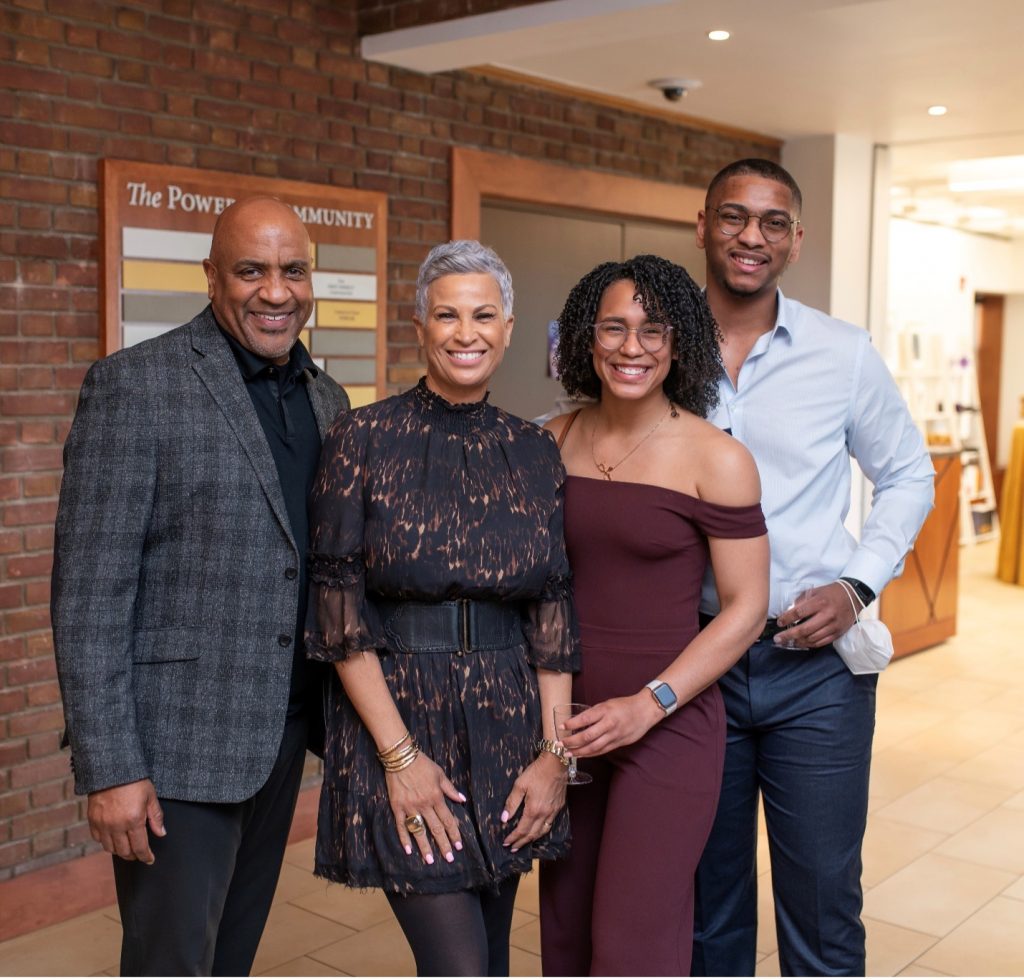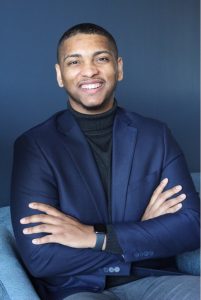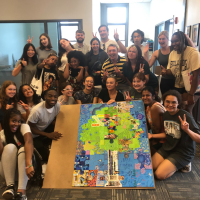August is Black Philanthropy Month. As we celebrate this month, we’re sharing stories that honor and celebrate Black philanthropy and philanthropists.
On April 30, the African American Philanthropy Committee of the Cleveland Foundation hosted its biennial African American Philanthropy Summit, focused this year on the theme “Philanthropic Equity: Making an Impact.” While the summit takes place once every two years, the leaders involved in the committee and summit are busy making an impact year-round. Sinegugu Gasa, Public Service Fellow for Community Narrative and Engagement at the Cleveland Foundation, recently sat down for an in-depth interview with Anthony Price, Advisor of Community Impact at Dell Technologies and an honorary co-chair of the 2022 summit, to talk about his philanthropic journey and what motivates him to give back.
Can you share a bit about your own personal “origin story” and how it shaped your philanthropic journey?
I was born and raised in Cleveland and grew up in a working-class family. I was raised by a single mother, and I am the oldest of three boys. My upbringing taught me a lot about the value of hard work, overcoming adversity and appreciating your sense of community and belonging. I am a proud graduate of Shaw High School, and I am the first in my family to go to college. Additionally, I was selected as a Gates Millennium Scholar for my high school and received a full-ride scholarship to attend Wesleyan University in Middletown, Connecticut. I graduated from Wesleyan with high honors while leading a nonprofit, Be the Change Venture 501(c)(3), which is still in operation today and helps young people of color find career pathways and cultivate the necessary skills to be successful.
You mentioned the importance of giving back and taking care of your community. How was this value instilled in you?
Growing up, my siblings and I would clean our yard throughout the summer. Landscaping was a great family bonding experience, but it was hard work. At one point, I asked my mom why we had to continually do the labor of maintaining the yard instead of paying someone else to do it. My mom’s response was: “What you do today will be a reflection of your tomorrow.” Those words have stayed with me. At times when I am experiencing self-doubt, I remember that at any given moment there is a choice in how we respond to the challenges of today and tomorrow. The decision to act will be reflected in the future we find ourselves in.
How do you define philanthropy?
I view philanthropy as an opportunity to make a meaningful yet strategic impact. At the heart of philanthropy is people. Philanthropy is about shifting the needle on issues that prevent people from living a meaningful life. If you are not interested in supporting and creating better pathways for people and their communities, then I would say philanthropy is not for you.
How do you ensure your philanthropy is strategic?
You must have a good understanding of the problems people face. Ask yourself, “how can I address societal issues in a way that is scalable?” For me, when I consider supporting causes, I focus on the mission, the people they seek to serve, and its scalability.
I currently serve on the boards of Be the Change Venture and The Jaylen D. Berry Foundation. Outside of monetary gifts, I think it is important to give my time and attention on boards to ensure the organization is staying aligned with strategic goals and are indeed serving people instead of ourselves. I am always identifying opportunities to ‘break outside of the box.’ In other words, I look at what others are doing and find ways for organizations I support to do things in unconventional ways.
Why is it important to make philanthropy more equitable? And what does more equitable philanthropy look like when it is done with intention?
Historically, communities of color have lacked access to the resources and opportunities made available to their white counterparts. These disparities continue to impact communities today. In my view, equitable philanthropy is about making strategic investments in communities of color long-term. This allows the field to close the gaps and level the playing field for everyone. My vision of equitable philanthropy includes investing in a way that ensures everyone can have access to technology, workforce development opportunities, and high-quality education that promotes transferrable skills into the job market.
How do you stay motivated? What inspires you to keep giving back, especially when the need is so great?
It’s about understanding that there is always someone who is in a more critical position than you are. If you are having a bad day, someone out there is struggling far more than you. Humility also goes a long way – understanding that no matter how hard you try, you won’t always get everything right. All I can do is try different things and see what works. I will admit that I am an overachiever, and with that, I have sometimes missed opportunities to prioritize my health and wellness. Now, I am much more attuned to practicing self-care, and I would encourage others to do the same.
Additionally, the adversities that I have faced in my life have taught me a lot. They have required tremendous grit to overcome, but they have also allowed me to develop the necessary confidence to pursue opportunities when they arise. My father left my life at the age of two and growing up in a working-class household taught me to appreciate the things I had as well as the things that I did not have. Over the years, I have learned to stand up for others, find my voice and use it to make a difference wherever I can.
How did you get involved in the African American Philanthropy Summit?
Ron Johnson is a great mentor of mine; he has played a huge role in my life, particularly when I launched Be The Change Venture. Ron is co-chair of the African American Philanthropy Committee of the Cleveland Foundation, and he suggested that I get involved in this year’s summit as an honorary co-chair. I am grateful to the committee for putting me in this role, and I look forward to using the opportunity to bridge gaps and help unite us around common goals. Additionally, I appreciate Ron’s leadership for passing the baton to younger and upcoming generations. A transition of leadership is necessary for us to continue making progress.
What is your message for young people trying to find their direction and purpose in life?
Most successful people who you may know and look up to have had tremendous challenges and failures to get to where they are today. What they realize is adversities are your strengths. You must get comfortable being uncomfortable. Whatever it is that you want to accomplish in life, understand that it will involve risks and hurdles along the way. Success takes time, so embrace the challenges that will be thrown at you in your journey. There will be people who don’t believe in you or those who may not want to hear what you have to say – keep at it, nonetheless. Realize that every single opportunity that you seize to make change counts.
You can learn more about the 2022 African American Philanthropy Summit and the work of the African American Philanthropy Committee – including how you can get involved – on our website here. Follow our blog and social media pages as we share stories of Black philanthropy throughout the month of August!




